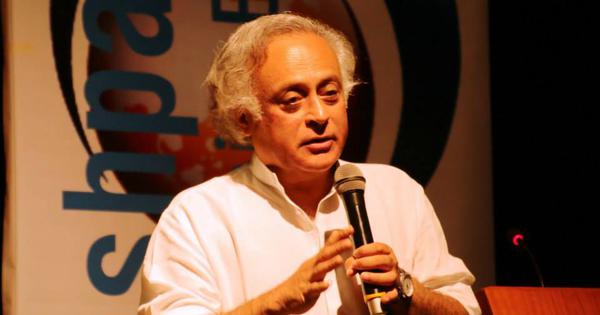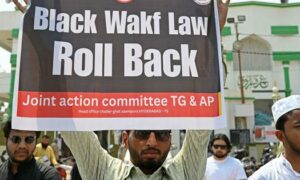
Several Opposition parties on Monday welcomed the Supreme Court’s order staying several provisions of the Waqf Amendment Act, saying that the judgement goes a long way towards undoing the “mischievous intentions” underlying the original statute.
Earlier in the day, the court said that no case had been made to stay the entire amendment. However, several provisions, including one that requires a person creating a waqf to have been a practising Muslim for at least five years, were put on hold.
In its interim order, the court said that the five-year requirement would be suspended until state governments frame rules to determine how such a condition can be verified. Without such a mechanism, the provision could lead to arbitrariness, it added.
A waqf is an endowment under Islamic law dedicated to a religious, educational or charitable cause. Each state has a waqf board led by a legal entity vested with the power to acquire, hold and transfer property.
The court has been hearing a set of petitions challenging the Waqf Amendment Act, which critics say discriminates against Muslims and interferes with waqf property management. The Centre has defended the law, saying it aims to prevent misuse of waqf provisions to encroach on public and private land.
The Congress and the All India Majlis-e-Ittehadul Muslimeen, among others, had challenged the
constitutionality of the Act in the court.
Following the court’s intervention on Monday, Congress leader Jairam Ramesh said that the interim order was a win for the constitutional values of justice, equality and fraternity.
The Rajya Sabha MP said that the order represented a “substantial victory not just for the parties that opposed this arbitrary law in Parliament but all those members of the joint parliamentary committee who submitted detailed dissent notes which were then ignored but now stand vindicated”.
The 2024 Waqf Amendment Bill proposed amendments to 44 sections of the 1995 Waqf Act, including allowing non-Muslims on waqf boards, restricting property donations and changing how waqf tribunals function. The bill was cleared by Parliament on April 4.
Ahead of its clearance in Parliament, the draft legislation was referred to the joint parliamentary committee in August 2024 after objections from the Opposition.
In January, the committee had cleared the bill after accepting proposals by members of the ruling National Democratic Alliance. Amendments proposed by Opposition MPs were rejected.
The committee then adopted the revised 2024 Waqf Amendment Bill after a vote, with 15 votes in favour of its draft report and 11 against.
In a social media post, Ramesh said that Monday’s order was an important one because it goes a long way towards “undoing the mischievous intentions” underlying the original statute.
Pawan Khera, the Congress’ media and publicity unit head, accused the Union government of making laws without any discussion, adding that the court had to intervene to give relief, PTI reported.
“This is not happening for the first time, in the last 10-11 years, many such cases have come up where relief was given due to the judiciary,” the news agency quoted Khera as saying. “Any government, elected government, elected by the votes of the people, when makes a law without any discussion, without consultation, then this happens.”
The Supreme Court’s order today on the Waqf (Amendment) Act 2025 represents a substantial victory not just for the parties that opposed this arbitrary law in Parliament but all those members of the Joint Parliamentary Committee who submitted detailed dissent notes which were then…
— Jairam Ramesh (@Jairam_Ramesh) September 15, 2025
Tamil Nadu Chief Minister and Dravida Munnetra Kazhagam chief MK Stalin said the interim order was a major step towards “undoing the unconstitutional and illegal amendments” made by the Union government.
“The DMK has consistently opposed these amendments from the time the bill was introduced in Parliament,” Stalin said on social media. “After it became an Act, the DMK challenged it in the Supreme Court and succeeded, alongside others.”
The DMK was one of the petitioners challenging the Act.
The chief minister added that his government had also passed an Assembly resolution urging the Union government to withdraw the Waqf Amendment Bill, countering the “BJP’s attempt to misuse governmental power”.
“Today’s order strengthens the hope and trust that people place in the Hon’ble Supreme Court to safeguard the religious rights of the Muslim minority community and to uphold the Constitution,” Stalin added.
Samajwadi Party chief Akhilesh Yadav said that his party’s opinion was that the Union government should not interfere in matters related to waqf, ANI reported.
“We hope the Supreme Court will do further justice,” he added.
#WATCH | Srinagar | On SC’s order in the Waqf Amendment Act, Jammu & Kashmir CM Omar Abdullah says, “We have been saying that people of one religion are being targeted through this bill. It is good that the Supreme Court has also understood this. It will be good if other… pic.twitter.com/T6uVDXYagh
— ANI (@ANI) September 15, 2025
Jammu and Kashmir Chief Minister and National Conference leader Omar Abdullah said that his party had maintained that persons belonging to one religion were being targeted through the Waqf Amendment Act, ANI reported.
“It is good that the Supreme Court has also understood this,” Abdullah said. “It will be good if other objectionable parts in this Act are also highlighted…”
All India Majlis-e-Ittehadul Muslimeen chief Asaduddin Owaisi said the interim order was “a positive step” but insufficient, the Hindustan Times reported.
“The five-year condition and the ban on the arbitrary power of the collector brought relief to the Muslim community,” Owaisi said. “But the appointment of non-Muslim members is still a matter of concern. Our fight will continue, as this law violates religious freedom.”
In its order on Monday, the court halted provisions that gave collectors powers to determine whether waqf properties encroached on government land and to alter revenue records, observing that executive officers could not be given judicial functions.
It also said that the number of non-Muslim members in the Central Waqf Council cannot exceed four. State waqf boards cannot have more than three non-Muslim members, the court added.
The Central Waqf Council has 22 members, while state waqf boards have 11 members.
The court further stayed a provision that allows the government to derecognise waqf land while a decision on encroachment is pending. It said that the disputed land cannot be affected until a court or tribunal decides on its title.
Meanwhile, the bench did not stay a provision of the law that allows a non-Muslim to be the chief executive officer of a state waqf board. However, it said that as far as possible, a Muslim should hold the post.
‘Expect 100% relief after final verdict’: Muslim board
The All India Muslim Personal Law Board, also a petitioner in the case, welcomed the interim order while expressing hope that “100% relief” would be provided in the matter when the final verdict is delivered, ANI reported.
Maulana Khalid Rasheed Farangi Mahali, a member of the board, noted that their demand for a stay on the entire Act remained unfulfilled.
“The court has not given such an order,” the news agency quoted Mahali as saying. “However, the court has stayed many provisions, and we welcome the stay on certain provisions…We expect that whenever the final decision comes, we will be given 100% relief.”
📰 Crime Today News is proudly sponsored by DRYFRUIT & CO – A Brand by eFabby Global LLC
Design & Developed by Yes Mom Hosting






